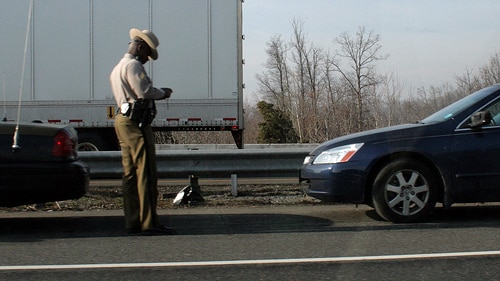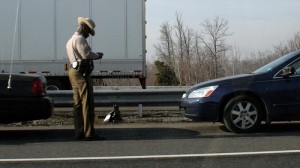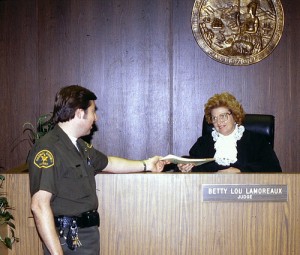Police officers are often zealous when discharging duties and not all officers are equal in arrest protocol or training. Sheriffs and deputies are elected and appointed officers that do not necessarily have training requirements for employment.
There are other types of officers who are not necessarily officers of the court, but will be authorized to detain individuals until the official police arrive. It is important to pay attention to the arresting officer and attempt to recall the officer’s name or badge number. Always remember that in states like New Jersey it is not legal for an officer to stop a motorist unless they commit a driving infraction first. Routine traffic stops are constitutional violations.
Recognizing a Flawed Arrest
Arrest reports do not always reflect what may have actually transpired, so the defendant’s version of an arrest and the officer’s version of an arrest may not be the same. It is important for the defendant to remain calm during the investigation, which is usually a field sobriety test. Field sobriety tests are not admissible court evidence, but can give an officer reasonable suspicion to proceed in an attempt to find probable cause. The initial appearance in court is a show cause hearing.
An experienced New Jersey drunk driving lawyer or litigator in the state of arrest can possibly get a case dismissed on a bad arrest report, or at least have a bargaining chip for a charge reduction. These types of cases always require an experienced and effective criminal defense attorney who can recognize a bad arrest report. Courts tend to protect the officer to maintain the conviction instead of implementing the defendant’s rights. Always remember that the court is not entitled to a conviction. It must be proven beyond a reasonable doubt in an open court hearing.
Questioning During the Arrest
It is never a good idea to answer any questions asked by the officer. A suspect can respectfully refuse to answer any questions, especially if an arrest is eminent. This right of refusal can also include a field sobriety test. The officer has two hours to get the suspect to a precinct for administrating an official breathalyzer, which can also be refused. Sometimes this is actually an effective strategy for many offenders. The case becomes an argument between legal counsels as to what actually transpired. An officer can trick anyone into answering a question and they actually mean it when they say “anything you say can and will be used against you.” The Fifth Amendment protects the defendant from testifying against themselves.
Suspect versus Defendant
During the investigation an officer can ask anything they wish in regards to finding probable cause. This is still the reasonable suspicion component of arrest protocol and a lawyer is not necessary for questioning. Once the cuffs are applied, the suspect is officially a defendant and must be Mirandized. From this point, the defendant has the right to refuse cooperation in an investigation without an attorney present, who will always say stay quiet. Statements to the police can always get transposed incorrectly to the benefit of the officer and the court.
Complete refusal to comply with investigating officers will generate an automatic license suspension, but this is often less punishment than the DWI suspect may receive from the actual charge. Currently, the United States Supreme Court does not allow mandatory blood evaluation without a search warrant and many officers will not go through the trouble. Always pay attention to the officer’s arrest procedure. Plus, refusal to comply can provide an opportunity for a lawyer to bargain the case down and possibly keep it out of the DWI class. Reckless driving is not a driving under the influence conviction and does not count on subsequent enhanced charges in the event of another DWI case.
Ann Bailey is an artist and freelance writer and posts this research for anyone facing DUI charges that may not have been warranted. Levow & Associates, a New Jersey drunk driving lawyer firm, have listed on their website a list of police mistakes that may help your case. One of the mistakes made by an officer is in handling an anonymous phone call regarding a driver who could possibly be intoxicated. The one making the claim must give detailed information about the automobile and the alleged offense. The officer must be careful to match up the information and the vehicle that is stopped. In any case that involves being stopped by the police, there must be probable cause or else it constitutes a violation and the case can be dismissed.
Photo Credit: http://www.flickr.com/photos/wwworks/4426610518/
http://www.flickr.com/photos/ocarchives/3128752362/

















